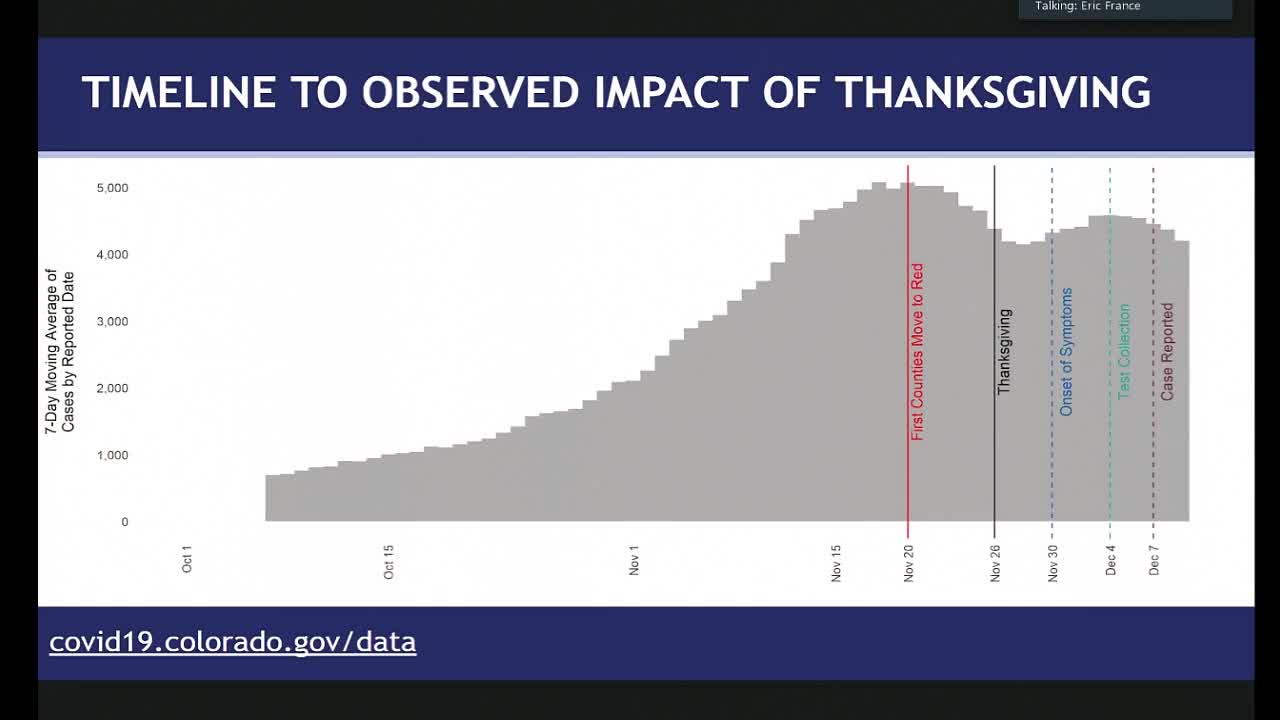DENVER — As of Wednesday, roughly 860 COVID-19 vaccines have been administered in Colorado and state health officials said health care workers are looking forward to being inoculated.
"Everybody's so excited. There's like this energized feeling throughout the building now where everybody is just feeling like maybe there's light at the end of the tunnel coming" said Dr. Michelle Barron, the UCHealth Infection Prevention senior medical director.
In a survey Denver Public Health sent out to their entire staff, 90% of people in the 7,000 responses wanted to receive the COVID-19 vaccine. Dr. Judith Shlay, the associate director of Denver Public Health, said they received their doses Wednesday and will begin administering them Thursday.
"It was like the eagle has arrived and we are so thrilled," Shlay said. "Everybody wants it as soon as possible and so, for us, it is great news because it has been a long year and we are excited to move to the next phase, which is recovery."
This week, the state received 46,800 doses of the Pfizer vaccine, which has a 95% efficacy, and they expect to receive more shipments Monday through Wednesday going forward, according to Dr. Eric France, Colorado Department of Public Health and Environment's chief medical officer.
France expects to see reduced hospital capacity because of the vaccine within the next 90 days. He anticipates the impact to continue through the spring, particularly for people in residential care facilities.
Thus far, no one in Colorado has had an adverse reaction to the vaccine, health officials said, though there have been some reports of allergic reactions elsewhere. The first person to receive a COVID-19 vaccine in Colorado was Kevin Londrigan, a respiratory therapist at UCHealth Medical Center of the Rockies in Loveland, who said he felt “great” afterwards.
READ MORE: The COVID-19 vaccine is in Colorado. Here are your questions answered
Michael Rouse, a 66-year-old African American Moderna Phase 3 trial volunteer, said the symptoms from vaccination are "so much better" than becoming infected with COVID-19. He received his first shot on Aug. 20. and experienced some mild symptoms, like fatigue and muscle aches, but they subsided within 12 hours. For his second shot on Sept. 17, he experienced similar, moderate symptoms, but felt well within 24 hours.
"I felt that because of the pioneers of the past, I've had a really healthy life, so I felt I needed to pay it forward," Rouse said. "I felt I needed to be kind of an example to the African American community that it's okay to get involved in these kind of trials. It helps everybody."
France said what Michael experienced was very similar to what the safety data shows.
Barron said there's a protocol for all vaccinations, including COVID-19, to monitor patients to ensure they don't have serious reactions.
Though she's terrified of needles, Barron is looking forward to receiving her vaccine Thursday, which will be of great comfort to her as she goes on to treat COVID-19 patients in the coming weeks.
"For those of you that are scared of needles, I'm with you, but it's still worthwhile to get," Barron said. "I'm pretty excited to be part of this, and obviously it'll help me be protected and also, hopefully, encourage other people to get it as well."
Though the vaccine distribution feels like a move toward the end of the pandemic, measures like mask wearing, hand washing and social distancing will remain in place for months until a higher percentage of the population is vaccinated.
“It’s really hard when you want to be with family and we cant be,” Shlay said. “But we will get there.”




